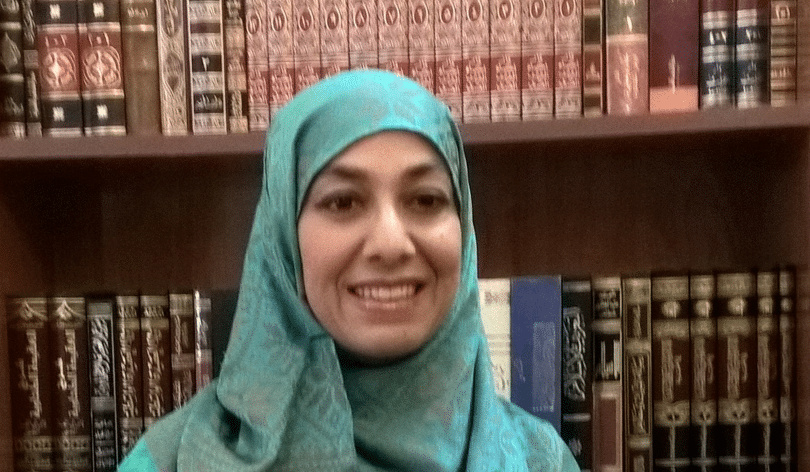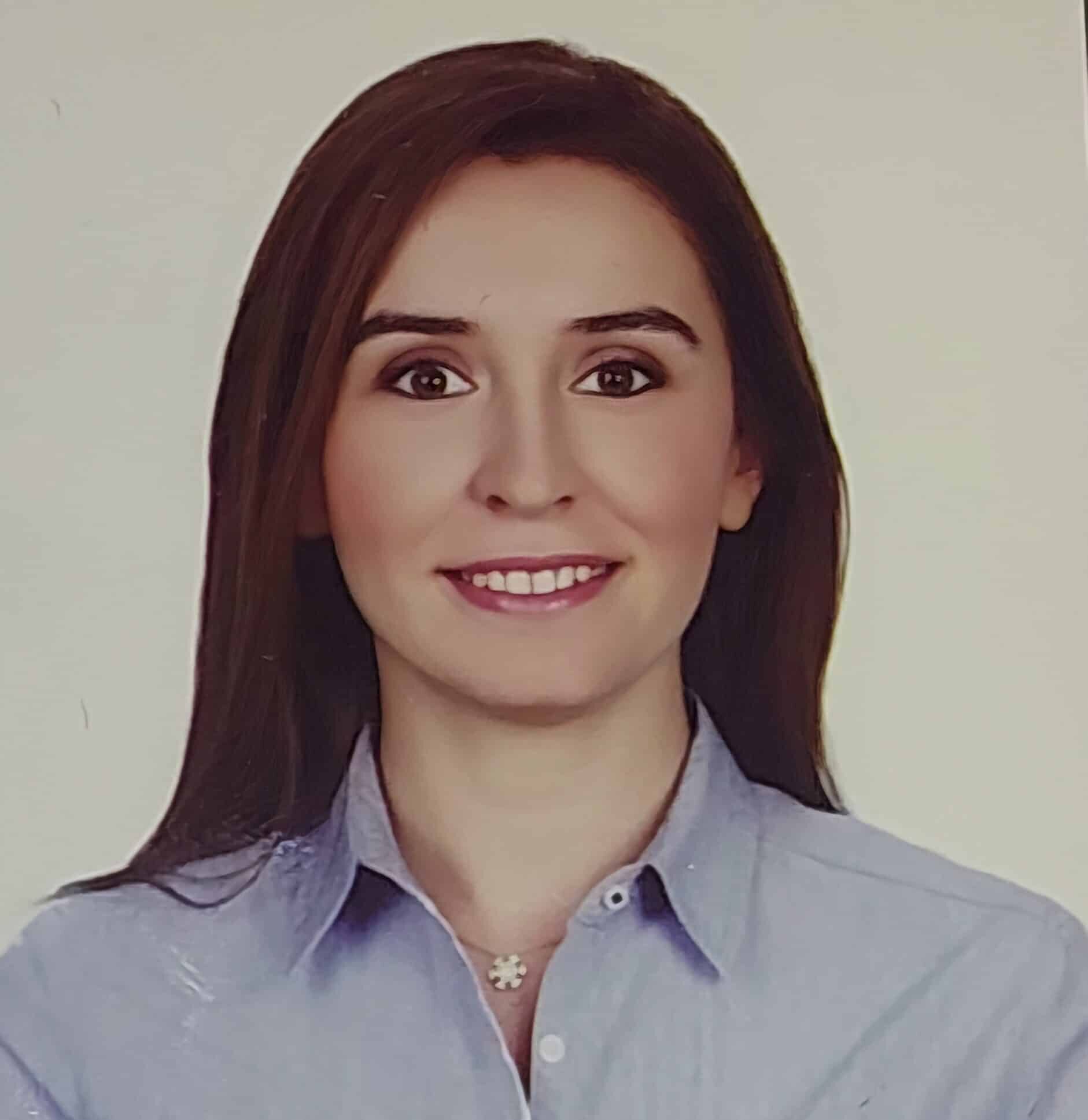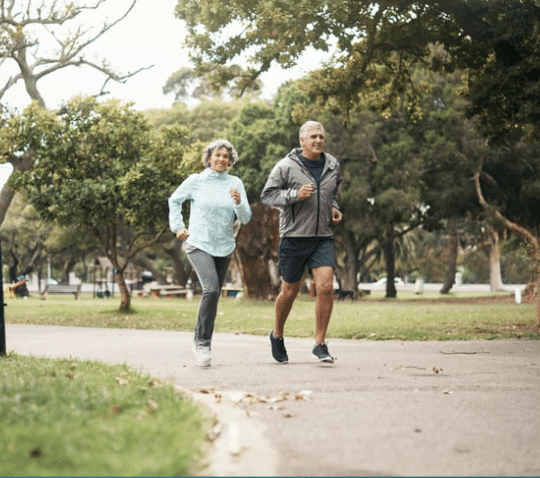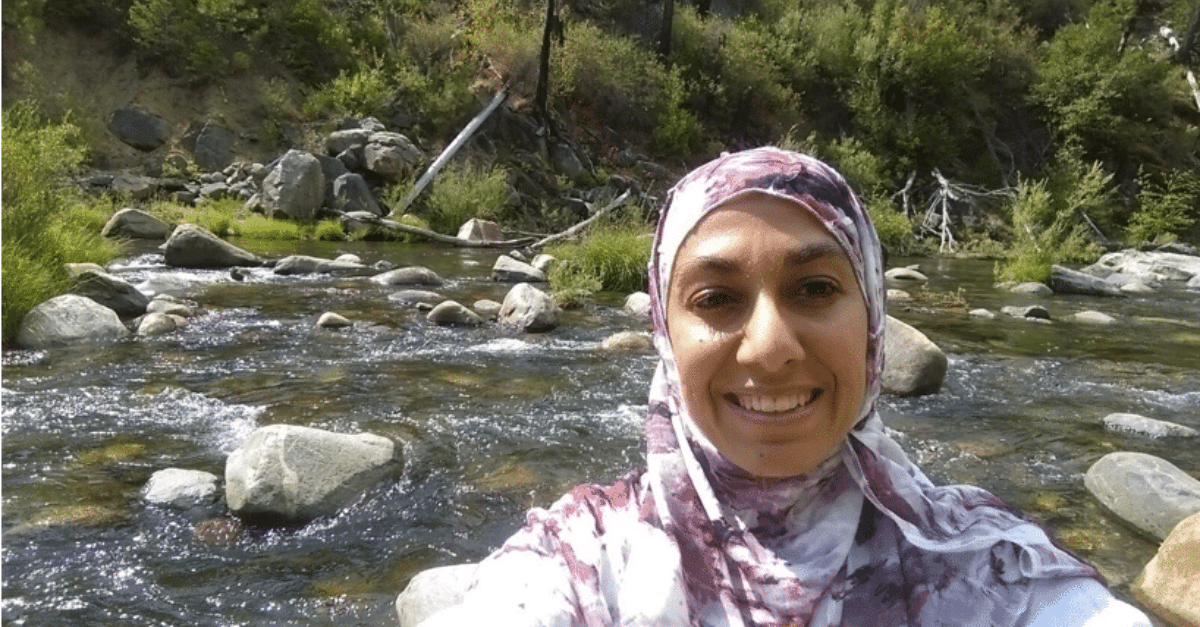As Mahnaz Malik watched Mark Hyman, M.D.’s T.E.D. talks online, his words about Functional Medicine resonated with her deeply. That’s the case for many FMCA students when they first encounter the theories behind the transformational model of healthcare.
But in Malik’s case, the thrill of recognition was far more profound. The way Functional Medicine includes the whole person, rather than a list of symptoms, didn’t just make sense to her on a practical and personal level, it hit on a spiritual dimension as well. In Hyman’s words, Malik heard echoes of her Muslim religion.
“There are so many things in the life and teachings of the prophet Mohammad that match the Functional Medicine matrix,” says Malik, a British citizen of Pakistani heritage who lives in Medina, in western Saudi Arabia. She moved to the Arabian Peninsula from the U.K. to teach English, then met and married her husband, Youcef, an Algerian, and decided to stay in Saudi Arabia. Along with the Quran, the holy book of Islam, the Sunnah (the collected teachings and practices of Mohammad) is the primary source of Islamic theology and law. The mental, emotional, and spiritual issues at the center of the Functional Medicine matrix are also at the core of the Sunnah, says Malik. What Malik heard Hyman tell his T.E.D. talk audience were ideas that she had been hearing her whole life. “It just resonated,” she said. “This is the thing for me.”
Struggling for breath, and information
It was only after years of ill health that Malik, who will graduate from FMCA in June, found Functional Medicine. She grew up believing good health and a long life were simply not in her genetic cards. Her mother had chronic health issues. Her father and his six siblings, along with a number of cousins, all died from complications from type 2 diabetes. “I just believed that one day it would be my turn,” she says.
Gastrointestinal issues plagued her throughout her life. In recent years, her asthma grew worse, her immune system was weak, and she was constantly getting sick. Sitting in the ER in 2014, gasping for breath through a nebulizer, yet again, she found herself thinking about her long-term health—and her children. After ten years of infertility her doctors couldn’t explain, Malik gave birth to Yaqub (now almost 10), Faye (now eight) and Lujain (now three and a half). “I’ve finally been blessed with these children,” she remembers thinking, “I don’t want to be in this terrible state of health. I can’t continue like this. I have to search for a solution myself.”
Finding a path to health
Hours of online searching led to lectures and webinars by Hyman and Kelly Brogan, M.D., Tom O’Bryan, M.D., Datis Kharrazzian, D.H. Sc. and Liz Lipski, Ph.D., which led her to Functional Medicine and the Institute for Functional Medicine. She learned about the work of Tim Noakes, M.D., and went on a ketogenic diet. “It completely changed my health and completely changed my life,” she says. Within just a few months, she experienced dramatic changes. “I didn’t even realize how badly I had been feeling all my life until I started feeling good,” she says. “I’d been dragging myself around, always exhausted, always pushing myself. I had brain fog and everything,” she says. The improvement in her health was “amazing,” she says. Not only did her ER visits end, she no longer needed her inhaler.
Beyond the healthy breathing, the mental clarity and the increased energy, Malik valued another feeling that resulted from her foray into Functional Medicine: empowerment. “Feeling that lifestyle is a greater factor than genes was incredibly empowering,” she says. Instead of feeling doomed by her genetics, she felt her own potential to prevent the poor health that she had previously believed was her unavoidable fate.
Progressive healthcare in an ancient city?
Family and friends noticed the difference in Malik’s health and were eager to know her secret. Lots of people she knew also suffered from poor health. Chronic illness and disease is rampant across Saudi Arabia. “It’s not just in America,” she says.
Medina, a city of about 1.3 million people, teems with “an amazing mix of international people,” says Malik. After Mecca, it’s the second most important Islamic pilgrimage site. The towering minarets of mosques and courtyard colonnades dominate the city’s ancient center (where non-Muslims are forbidden) while beyond those walls, high rise buildings and even Starbucks are solid evidence of urban life in 2017.

Conventional medicine dominates healthcare in Saudi Arabia. There are no chiropractors, says Malik. There are no osteopaths. There’s a bit of traditional, herbal medicine, practiced mostly by the older generation. As Malik told people about Functional Medicine, people were intrigued—especially by the ways this “new” prescription for healthy living echoed the ancient teachings of Mohammad in the Sunnah.
“Both take every aspect of the person into account, not just the physical,” she explains. Because some of the core ideas of Functional Medicine may sound familiar to Muslims, Saudi Arabia seems ripe ground for Functional Medicine to flourish. There are, however, major challenges. Good luck finding a copy of “The Grain Brain,” in Arabic. As Malik began sharing her own journey to health with others seeking solutions, she wanted to send people to websites or books to learn more, but she couldn’t find any in Arabic. She began preparing PowerPoint presentations in Arabic for people to help them understand what they needed to do to feel better. She kept turning back to the internet to research friends’ issues.
Finding herself in FMCA
“I knew I needed more than Google,” Malik says. She was thrilled to discover FMCA. The day she learned about character strengths was the day she realized that she was in the right place. “Learning your character strengths is like being introduced to yourself in the most positive and inspiring light,” she says. “I looked at my top three strengths, love, perspective, and spirituality, and realized that they were things at the heart of the Functional Medicine matrix. I realized that the things that are core to Functional Medicine are the very things I’m most passionate about. Wow! That had such an impact. When I made that connection, I realized ‘I’m home.’”
International connections
Digging through resources to learn about Functional Medicine on her own, Malik felt very alone. Becoming an FMCA student gave her an extraordinary sense of connection—to the faculty, to other students, and to the greater Functional Medicine community. “This is not like any other online course where you’re studying online, by yourself,” she says. “It’s so dynamic and you’re constantly connecting. It’s a wonderful feeling to be part of that.”
Malik helps cultivate that sense of connection as a course facilitator, as well as a student. While she’s not certain exactly how she’ll use her new skills and knowledge in Saudi Arabia in the future, she’s confident she’ll find a way to use her training to help people, something she believes is her true calling. She feels a bit ahead of her time in Saudi Arabia, where she hasn’t found any Functional Medicine doctors. Fueled by her passion for helping others, Mahnaz Malik is ready to bring the people of Medina a new path to health. After all, it is a city where monumental changes have taken root: Medina is where the prophet Muhammad changed the direction all Muslims sit in prayer, to face toward Mecca. Who’s to say one passionate, inspired woman won’t change the direction they turn toward health?

Our Latest Blogs
-

Student Spotlight: Günseli Saygi
Read Full Article: Student Spotlight: Günseli Saygi -

37 Healthy Aging Tips From The Experts
Read Full Article: 37 Healthy Aging Tips From The Experts -

How To Live Longer: Simple Philosophies From Leaders in Health
Read Full Article: How To Live Longer: Simple Philosophies From Leaders in Health

